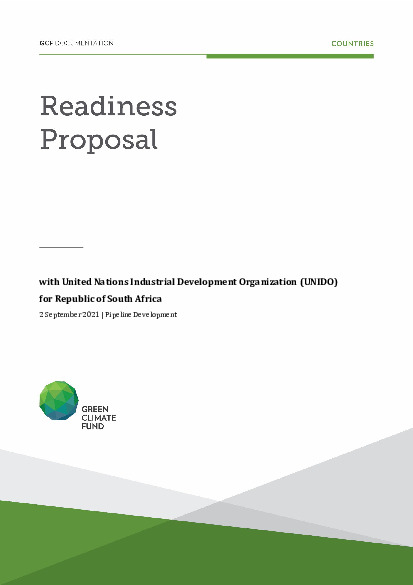Pipeline development to deploy clean energy technology solutions in municipal wastewater treatment works of South Africa

Pipeline development to deploy clean energy technology solutions in municipal wastewater treatment works of South Africa
Over the last couple of decades, South Africa has become one of the largest economies in Africa, benefiting from high levels of industrialization and abundant natural resources such as large mineral deposits. Nevertheless, the country still faces many social and environmental challenges. South Africa’s Greenhouse Gas (GHG) emissions by 2025 and 2030 are forecasted to peak between 398 and 614 Mt CO2–eq.1 Over 85% of electricity generation is based on fossil fuels2, and urban water systems are among the largest electricity consumers (over 25% of all municipal electricity consumption), thereby making then one of the biggest drivers of Greenhouse Gas (GHG) emissions in the country.
Cities and municipalities are facing rapidly increasing demand for water supply and wastewater treatment services. This is driven by remarkably high levels of rural-to- urban migration and the need to provide water services to previously disadvantaged areas, including informal settlements. Consequently, the volumes of waste water being treated in municipal wastewater treatment works (WWTWs) is rapidly increasing across the country. By their very nature, WWTWs are high energy consumers as they have to operate pumps, motors, and other equipment 24 hours a day and continuously through the year.
Active deployment of renewable energy (RE) and energy efficiency (EE) technologies, services and systems in municipal WWTWs would effectively support significant GHG emission reduction in line with “peak, plateau and decline” trajectory where GHG emissions peak between 2020 and 2025, plateau for approximately a decade and begin declining in absolute terms thereafter.. However, the uptake of renewable energy and energy efficiency technologies in the sector faces several challenges that include lack of a coordinated approach amongst municipalities and support institutions in developing climate financing opportunities for the sector. In addition, municipalities and other stakeholders’ lack the capacity to support the planning, programming and implementation of GCF-funded activities.